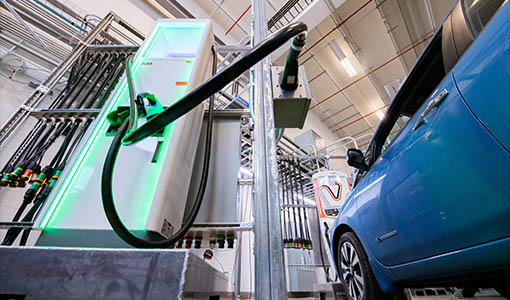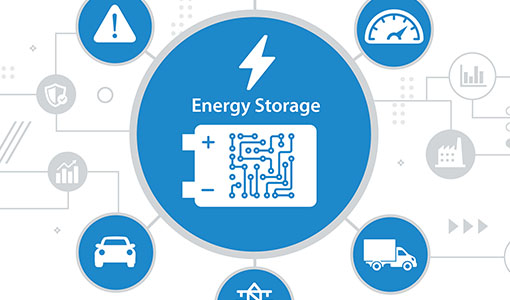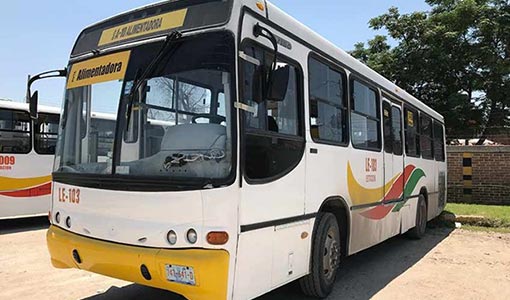Explore our collection of new stories for this topic.
Search or filter for a specific story using the options below.
April 2021
Researchers Rev Up Innovative Machine Learning Strategies to Reclaim Energy, Time, and Money Lost in Traffic Jams
Inching forward in bumper-to-bumper traffic, drivers bemoan the years of their lives sacrificed in bad commutes.
Google Taps NREL Expertise To Incorporate Energy Optimization into Google Maps Route Guidance
To take a bite out of transportation energy use and emissions and combat climate change, NREL is partnering with Google to develop more eco-friendly routing in Google Maps.
March 2021
NREL Work Helps Visitors to National Parks Get Home Again
NREL has been consulting with the National Park Service on where to install electric vehicle charging stations at select sites in California. The last of the new charging stations is expected to begin operating by the end of this year.
How To Electrify the Entire Federal Vehicle Fleet: NREL Fuels Smart Management with Data-Driven Research
With the Biden administration announcing a push to electrify the entire federal fleet, NREL's work supporting energy-savvy fleet management is more critical and timely than ever.
From Wet Waste to Flight: Scientists Announce Fast-Track Solution for Net-Zero-Carbon Sustainable Aviation Fuel
A novel biorefining process using the untapped energy of food waste and other wet waste to produce a "drop-in" sustainable aviation fuel may lift net-zero flights off the runway sooner than you think.
Cyber-Energy Emulation Platform Offers Insights into EV Fast-Charging Station Cybersecurity, Mitigation Strategies
Leveraging the newly developed Cyber-Energy Emulation Platform, NREL researchers evaluated a 50-kW fast-charge station in the ESIF to identify risks and challenges that fast-charge stations could potentially introduce to charging infrastructure.
February 2021
Silicon Anode Research Offers Pathway to Increased Driving Range for Electric Vehicles
A new NREL-led multi-lab consortium addresses critical barriers to the development of smaller, cheaper, and better performing lithium-ion batteries for electric vehicles by investigating the use of silicon as an alternative to graphitic carbon anode material.
Lighting the Path to Net Zero: NREL's Research Strategy Drives Deep Transportation Decarbonization
The transportation sector is the largest source of greenhouse gas emissions in the United States, accounting for about 28% of total carbon emissions. Turning that metric to zero stands as a critical task in the global push to drive down emissions to avoid the worst impacts of climate change.
NREL Advances in Battery Research with Physics-Based Machine Learning Accelerates Characterization of Cell Performance, Lifetime, and Safety
Energy storage scientists at NREL are turning to cutting-edge machine-learning techniques to strengthen understanding of advanced battery materials, chemistries, and cell designs.
Using Mathematical Models To Enable Transportation Decarbonization and Combat Climate Change
Conducted in partnership with USAID, an NREL study assessing the electrification potential of transit fleets in two Mexican cities determined that at least 80% of the operational bus days for the studied routes were suitable for electrification—with a 250-kWh battery in Mexico City and a 300-kWh battery in León.
Share
Last Updated May 5, 2025









